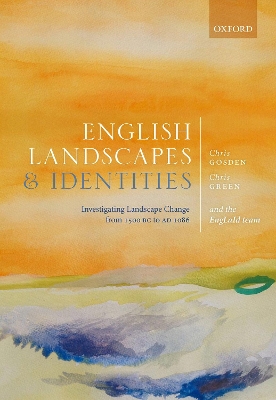Long before the Norman Conquest of 1066, England saw periods of profound change that transformed the landscape and the identities of those who occupied it. The Bronze and Iron Ages saw the introduction of now-familiar animals and plants, such as sheep, horses, wheat, and oats, as well as new forms of production and exchange and the first laying out of substantial fields and trackways, which continued into the earliest Romano-British landscapes. The Anglo-Saxon period saw the creation of new villages based around church and manor, with ridge and furrow cultivation strips still preserved today.
The basis for this volume is The English Landscapes and Identities project, which synthesised all the major available sources of information on English archaeology to examine this crucial period of landscape history from the middle Bronze Age (c. 1500 BC) to the Domesday survey (c. 1086 AD). It looks at the nature of archaeological work undertaken across England to assess its strengths and weaknesses when writing long-term histories. Among many other topics it examines the interaction of ecology and human action in shaping the landscape; issues of movement across the landscape in various periods; changing forms of food over time; an understanding of spatial scale; and questions of enclosing and naming the landscape, culminating in a discussion of the links between landscape and identity. The result is the first comprehensive account of the English landscape over a crucial 2500-year period. It also offers a celebration of many centuries of archaeological work, especially the intensive large-scale investigations that have taken place since the 1960s and transformed our understanding of England's past.
- ISBN10 0198870620
- ISBN13 9780198870623
- Publish Date 6 May 2021
- Publish Status Active
- Publish Country GB
- Imprint Oxford University Press
- Format Hardcover
- Pages 498
- Language English
